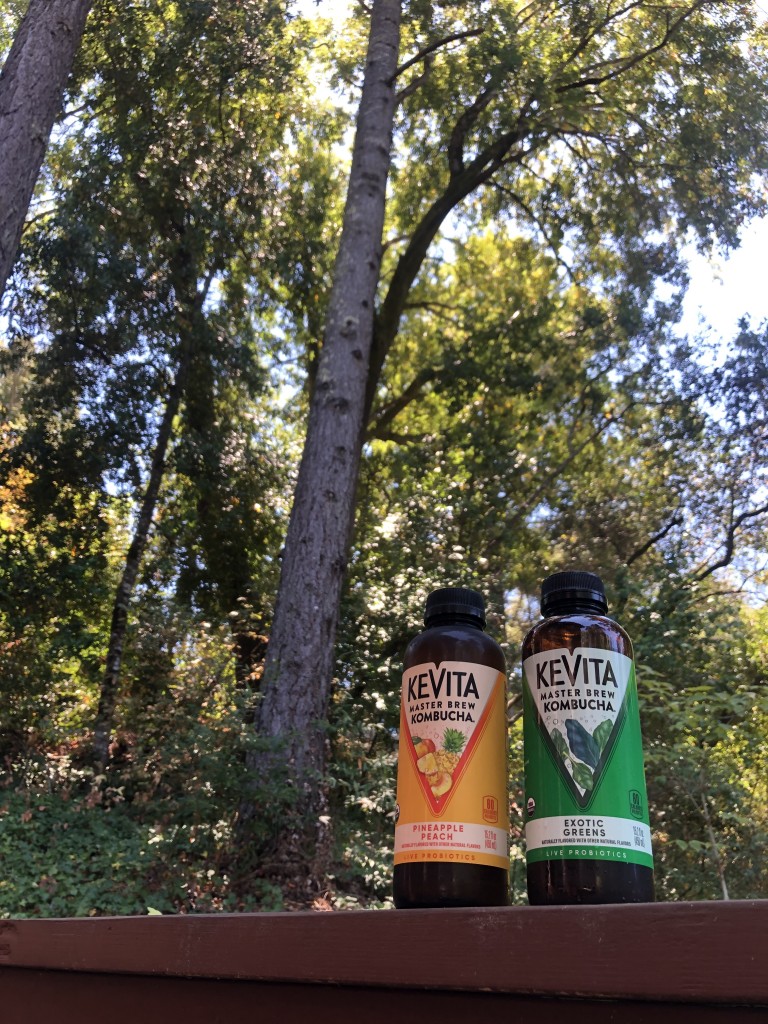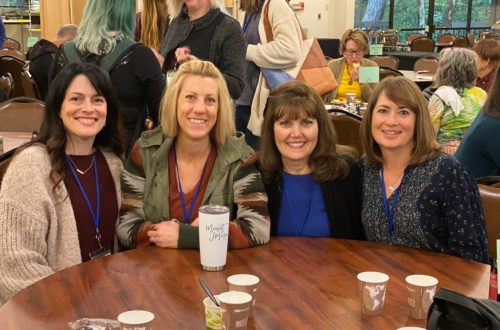Optimists and Their Kryptonite: Why Blowing Sunshine Doesn’t Always Work
Just because I normally see my kombucha bottle as half full doesn’t mean I don’t get sad when it’s empty.

A large portion of optimists I know tend to be funny, super friendly, or both. One friend said she’s the funniest on social media when she’s depressed or going through muck.
Another posts closeup pics of calm objects and events even though her life is falling apart behind the scenes.
I belong to the optimistic lifers club. And I married a pessimist. Of course I didn’t know he was a pessimist when I walked down the aisle, but I figured it out pretty quick.
He says assuming the worst makes more sense because then if the situation turns out better than he thought, it’s like a Christmas bonus.
Okaaay… I see what you’re saying. But the negativity….
Two-and-a-half decades later, he continues to call himself a realist. At the end of the day, who’s right? And at the end of the next day, does it matter?
Optimist: “The glass is half full.”
Pessimist: “The glass is half empty.”
Realist: “Yep, that’s a glass alright.”
Engineer: “The glass is twice as big as it needs to be.”
Idealist: “One day, cold-fusion from a glass of water will provide unlimited energy and end war.”
Accountant: “Does the glass really need all that water?”
Quantum Physicist: “The glass has a 50% probability of holding water.”
Philosopher: “If no-one looks at the glass, who’s to say how full or empty it is?”
Mom: “Who put the glass here?”
*
The Optimist’s Kryptonite
I used to think being an optimist was better, happier, and more logical than the other option.
- Why would it ever be a terrible thing to operate as little miss congeniality?
- I see silver linings in almost everything; why not share them?
- There’s so much negativity in the world—wouldn’t everyone like to be reminded of the bright spots?
Over the past few years I’ve learned how the downside of optimism can tend to be… umm… I don’t know… confusing? Annoying? Misguided?
My kryptonite might look like humor when bad news hits, denial when tragedy strikes, or withdrawal when shame rises. And that’s just when I have to deal with my own junk.
When someone calls to tell me they’ve been diagnosed with a non-curable disease, my old reaction might have included all the upsides, pointing out how at least it’s not terminal, and gently recounting the things we still have to be thankful for.
Seems logical in the moment, but ouch. Does my optimism get in the way of being able to sit with someone in the middle of their misfortune?
And when my friend calls to tell me her dad is dying, I don’t need to follow my, “I’m so sorry” with, “At least he lived a good life,” or, “At least he’s going to heaven.”
Sit in her grief.
Shut your mouth.
Let it be awkward.
Some of you might remember my story of having a miscarriage before our first son was born. The first thing one of my friend’s said was, “Well, at least you know you can get pregnant.”
*sigh*
I know she was trying to look on the bright side, but it didn’t help. Pretty sure that’s when I vowed to never try and cheer someone else up with, “Well, at least….”
In the past year I’ve been intentionally paying attention to my emotional intelligence. Do you know yours?
noun “The capacity to be aware of, control, and express one’s emotions, and to handle interpersonal relationships judiciously and empathetically.”
… to recognize my own emotions and those of others.
… to communicate effectively and empathize with others.
Do I recognize the emotions of my friends and let their sadness soak awhile? Or do I interrupt and plow through with a bible verse, blowing sunshine and telling everyone it’s all gonna be okay? Am I able to empathize with others without trying to cheer them up or change the subject?
I need to remember that masking my emotions with happiness and positivity isn’t genuine or productive. And when I read how emotionally intelligent people employ negative and positive emotions intentionally in the appropriate situations, I knew I wanted to be more like them.
Sitting with friends and family in their grief might not come naturally for those of us who tend to deal with awkward situations with humor or unicorns and rainbows. Some of us need to practice the art of leaving space to be sad for a bit. Giving ourselves permission to go there could feel unnatural, but giving our people space to grieve and process is crucial.
*
Not in Front of, Next To
A short while ago a small bomb got dropped in my lap. In an attempt to show support during this rough patch, a friend offered these words:
“I have been dragged through Jesus’ lovin’ circumstances… not like Job, but close enough. There is no rhyme and no reason. I am not offended at anything we have in common.”
Their attempt worked. Not cheering me up, not offering a joke, and not showing me the bright side felt perfect. And though I chose not to share my angst with this person, the solemn encouragement resonated.
I didn’t need anyone to pull up a chair in front of me, stare me in the eyes, and tell me what I already knew.
- I already knew God was still on the throne.
- I already knew I was eventually going to be ok.
- I already knew I still had a boatload to be thankful for.
But when someone pulls up a chair by my side and stares straight ahead with me, I know I’m not getting a lecture or well-meaning advice. I’m getting a friend.
*
Optimistic, Pessimistic, Humanistic
Does being optimistic make me more fun to be around and help me live longer? Maybe.
Does being pessimistic make my husband more realistic? Possibly.
Would our world be better if we all flexed to the middle and chose to be more humanistic? Yep.
I’m writing this from the heart of the redwood forest, and I love the strong confidence of these beasts. They’re not worried about all the chaos in the world. They just stand tall, rooted and growing.


I don’t think it matters if you’re naturally a pessimist or an optimist. What matters is how you operate with the personality God gave you, how you treat people, and how you continue to grow.
I still have so much necessary growth. I pray I never get to a point where I think I have it all figured out. I want to be like these redwoods: rooted and growing. Confident and curious. Established and advancing.

No matter your translation preference, may we all keep Romans 12:15 in mind:
“Rejoice with those who rejoice, and weep with those who weep.” (NASB)
“When others are happy, be happy with them. If they are sad, share their sorrow.” (TLB)
And if you need to chat, find a friend with an extra bottle and pull up a chair. I might be an optimist, but I won’t be offended by anything we have in common.






23 Comments
Gil Mellis
Wow! So good. Glad I went back to read this. I am generally an optimist too, and so agree that it can be misused. Our kids (Dave & Keri) who have gone through Spiritual Formation training were the first ones to introduce us to the concept of “sitting with someone in their pain”. Those “optimistic words” are indeed ones that they probably already know. In counseling people, or just being a friend, Sue & I for years have said that our 2 least favorite words are “at least . . .”. While there may be truth in an “at least” statement, you are so right that that is not what they need to hear at that time. “At least” ignores the pain that they are going through and tries to rush them to a happy place too soon. “At least” statements are often used because WE are uncomfortable with someone’s grief and the “at least” statement is our attempt to get them out of that grief so WE will feel better. Thanks for you thoughts (also, loved your different views of how people look at the glass of water)
Carrie Talbott
Sounds like you’re ready to teach a class now! Thanks for your insights; on one hand, it’s a complicated issue, and on the other, it’s super simple. Now I want to know why your email is sea horse in Japan. 🙂
Gil Mellis
I have been a volunteer since 1998 for a ministry arm of MAI (Missionary Athletes International)(mai.com) called the Southern California Seahorses(seahorsesoccer.com). They minister through soccer doing clinics, games, tours, etc. I volunteered for their professional team from 2001-2015 and have been on 11 outreach trips to Japan with them. We missed last year because of Covid but hopefully will be able to go this year. On these trips we have many opportunities for testimonies and since many of the tour members come from Christian homes, there are a number of them to which your post on Boring Testimony would apply.
Carrie Talbott
Very cool. Wow… 11 trips to Japan is no joke! Thanks for passing on my writings to other missionaries and Christians; I appreciate that!
Don Broesamle
Read this thinking of you:
She opens her hand to the poor and reaches out her hands to the needy.
Strength and dignity are her clothing, and she laughs at the time to come.
She opens her mouth with wisdom, and the teaching of kindness is on her tongue.
A woman who fears the LORD is to be praised.
Give her of the fruit of her hands, and let her works praise her in the gates. – Proverbs 31
You’re a blessing, lady!
Carrie Talbott
Thank you, Don. You are kind… and a blessing too!
Marcy
This is So important! I just studied Job this past week. When he was in his deepest lie, his friends stayed with him and were just “being”! Not saying or doing anything!
I struggle with severe depression. No one can fix it. God can heal it in Earth if he chooses. I can’t just pull my boot straps up and keep going. It’s so hurtful when people say this or something similar.
I love your honesty and how you are allowing God to groom you!
Blessings
Marcy Salunga P.S. where are the God stories from your Mexico Missions?
Carrie Talbott
Good points, Marcy. Thank you for your honesty and vulnerability. I’m sorry you have to deal with severe depression. I can’t even imagine what that would feel like. Yes, I love the example of Job’s friends; such a great reminder.
Most of my Baja stories are down below–sprinkled throughout the past few years.
DeLynn
I love that you were writing this under the influence of the Big Trees,standing strong & growing towards the light!! That’s what happens in our lives as we grow in our likeness of Jesus.I LOVE how the HS speaks to me & affirms what he says to me through various sources! He spoke to me last night as I read Ephesians 6:10-14.”Stand” was what was impressed to me big time! Then He affirmed his message to me this morning as I read your blog! Stand tall, stand, holding your ground in your growing faith towards the light, stand next to others in this life! Love ya!????????✝️
Carrie Talbott
Thank you, DeLynn. I love your story, and that my blog post got to be a part of it! Yes, I always love it when God tries to get through to me in multiple ways. Sometimes it takes a while for my thick brain to catch on. Sheesh. Thanks for reading and sharing your insight!
Shelby
I feel like I am the pessimist or “realist” while my husband is the optimist. Part of it is that he wants to fix things for me.
Sometimes when I am feeling like things are hard or I am feeling down, I don’t want to hear about all of the solutions or bright sides, I just want to be heard and have my feelings validated.
Just let me have my pity party okay?! Haha
So just having someone listen and sympathize is helpful in itself. I feel like I have to voice the negative before I can be receptive to the positives: “yes, God is in control” “it could be worse” “you still have so much to be thankful for” etc..
It is hard to remember that people are wired differently (especially when it is your spouse/kids), and trying to see where they are coming from and understand that the way they process things is not the same as you.
P.s. Carrie you always did a great job talking to me in our one-on-one chats during Ventana. You are a wonderful encourager and always had a good balance of sympathy and advice ???? love ya!
Carrie Talbott
I get it. I usually want to fix things too, but I think that has more to do with my numbers on the Enneagram. I am learning to slow down, listen, and let people be sad/mad/frustrated, but it’s not natural. Even when I react in a calm, non-fixing way, I still have an urge that makes me want to help them move to the next step. It will probably always be a struggle, but at least I’m finally aware of it. Aww… the one-on-ones. 🙂 Thanks for your kind words. I have a feeling I would be a better leader/mentor these days, but I’m glad you have positive memories. Te amo tambien!
Marilyn
Thanks for bringing your presence and tender care, along with some great stories about Fred, to my porch last night. You and Doug did weep with me and yet find joy.
Carrie Talbott
It was our pleasure, Marilyn. I’m sorry you have to walk this road. Fred will always be remembered!
JOHN KAHLER
Great article. I always feel like I need to say something when someone is experiencing grief or it they feel overwhelmed. I wish you could have heard Dr. Ron Allen speak about the health problems of his daughter while he was at Mt Hermon many years ago but that was during an adult session. He did publish a pamphlet on the sovereignty of God which you might find interesting if you can find a copy.
Along the lines of grief, Kevin had a friend who stopped taking phone calls from Kevin. Kevin was persistent and finally the friend answered his call. As they talked, the friend shared that he and his wife had lost a baby in utero. It was discovered on his wife’s very last visit to her OB-GYN before the baby was to be born. The doctor induced labor knowing that the baby would be stillborn. It was an awful situation and neither mom nor dad were dealing with it well. Kevin’s comment was, “Dude, you got robbed”. His friend was so appreciative of his remark. At last, someone understood. He was tired of hearing about how it was God’s will, there must have been something wrong with the baby, you can have another, etc., etc., ad nauseum.
Carrie Talbott
I know–I always feel like I need to say something too. It’s especially hard for those of us who are extroverts and/or talkers to remember that some situations can’t (and shouldn’t) be solved with words.
Dr. Allen’s story about his daughter sounds interesting. There’s nothing like a personal story to turn my ear.
I love how Kevin offered a few words of empathy without preaching or trying to cheer up his friend. I can’t even imagine losing a baby at almost full term. So heartbreaking.
Thanks for chiming in, John. You always bring great examples and encouragement. I appreciate you sharing your life experience and wisdom. We all need to learn from each other!
Jennifer Zarifeh Major
So good!!
Learning that *no words* are what is needed. Just to sit and be there. Make the tea. Do the laundry. Help without preaching, but preach by helping.
Carrie Talbott
Great words, Jennifer. Did you make up that last line? Love it!
Jennifer Zarifeh Major
Thank you.
Yes, I did. Thank you!
Carrie Talbott
Intentional and creative. Nice job!
Jennifer Zarifeh Major
Thanks!!
Chris
LOVED THIS, CARRIE!! Thank you!
Carrie Talbott
You’re welcome, Chris. Thanks for reading. 🙂